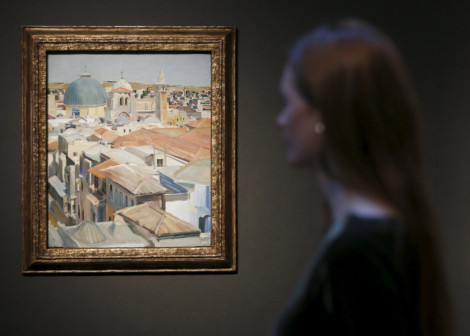
The carnage that took place a fortnight ago in Paris by Daesh (the self-proclaimed Islamic State of Iraq and the Levant) has backfired, hurting Arabs and Muslims everywhere, especially in Africa, Europe and the United States. It has degraded Arabs and Muslims everywhere, igniting racism and religious persecution.
In my teens, my parents took me to Jerusalem, where we visited the famous Church of the Holy Sepulchre, where Jesus Christ is believed to have been buried. My late father pointed out that day that the famous Muslim caliph, Omar, who was the second caliph after Prophet Mohammad (PBUH), had visited Jerusalem and this prominent church. While there, some of his Palestinian hosts asked him to pray inside the church, a step that would have led to turning the church into a mosque. But Caliph Omar quickly interrupted them and asked them to wait until he was through with his visit. He then stepped out of the church and into the yard a few steps from the church, kneeled in the open space and began to pray.
Today, visitors to occupied Jerusalem may see the Mosque of Omar established about 100 metres from the church — a praise-worthy gesture that Palestinians, Christians and Muslims have always lauded. That’s one reason why I named my son Omar. Another was in honour of the Libyan leader Omar Al Mukhtar for liberating his country from Italian rule.
Regrettably, the blood-letting in Paris has disgustingly precipitated harsh reactions, especially ugly intolerance within the United States, which has a large and successful Arab-American population. One town, Hamtramck in the state of Michigan, earned in 2013 the distinction of becoming — according to a front-page report in the Washington Post — “what appears to be the first majority-Muslim city in the United States, following the arrival of thousands of immigrants from Yemen, Bangladesh and Bosnia over a decade”.
In the US, what has been disappointing and critical has been the stance of the Republican Party, which is in control of the House of Representatives. Last week, the Republican representatives overwhelmingly passed legislation aimed at tightening controls on refugees from Syria and Iraq. The vote was 289 to 137. There is hope it will be derailed since President Barack Obama has promised to veto the resolution and the Senate will not endorse the House’s action. Obama has pledged to admit 10,000 Syrian refugees into the US, although more than half of the governors had declared that their states would not allow any Syrian refugee to resettle there.
Moreover, it is deplorable to hear the erroneous claims by the leading Republican presidential candidate, Donald Trump, as was the case when he maintained that he watched “thousands and thousands of people” in Jersey City, New Jersey, cheering the fall of the World Trade Centre on September 11, 2001, giving the impression that he was talking about Muslims in the US being happy that so many Americans died in the attacks. Former Florida governor Jeb Bush reportedly said Trump’s comments about Islam were “manipulating people’s angst and their fears”.
James Zogby, president of the Washington-based Arab American Institute and author of Arab Voices, wrote in the Huffington Post: “How long it will take and how much damage is done before we can come to our senses will be determined by the degree to which we demonstrate strong and assertive leadership to challenge and overcome fear and temporary madness that is in the air.”
This is a point that should be well taken by the Arab-American community to take a progressive step and explain Islam in the classroom.
George S. Hishmeh is a Washington-based columnist. He is a former editor-in-chief of the Daily Star.









